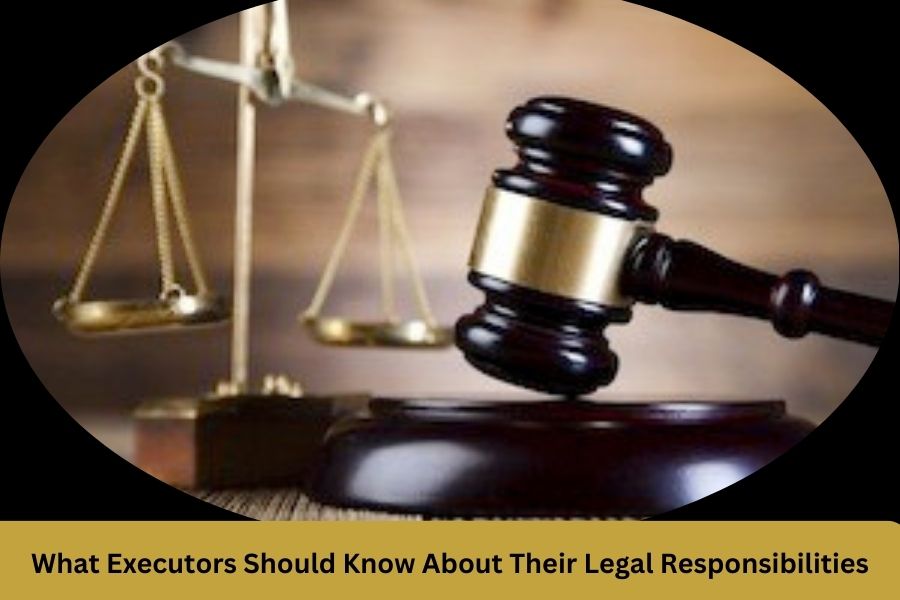Being named as an executor of an estate is both an honor and a serious legal responsibility. Whether you’re preparing to take on this role or have just been appointed, understanding the scope of your duties is critical to managing the estate efficiently and lawfully. At The Real Estate Law Firm, we specialize in guiding executors through the estate administration process with clarity, confidence, and legal precision.
In this article, we’ll explore what executors should know about their legal responsibilities, highlight common challenges, and explain how professional legal support can ease the burden.
Start your estate planning journey with expert legal help.
Who Is an Executor?
An executor is a person or institution appointed in a will to administer the deceased person’s estate. This includes gathering assets, paying debts and taxes, and distributing the remaining estate to beneficiaries according to the terms of the will.
Executors are legally bound to act in the best interests of the estate and its beneficiaries. That’s why The Real Estate Law Firm recommends that executors educate themselves about their fiduciary duties and seek legal counsel when necessary.
Core Legal Responsibilities of Executors.
1. Locate and File the Will.
The first duty of an executor is to locate the deceased’s valid last will and testament. This document must then be submitted to the local probate court for authentication. If there is no will, the estate is considered “intestate” and must follow state succession laws.
2. Apply for Probate.
Probate is the court-supervised process of validating the will and granting the executor legal authority to act on behalf of the estate. The Real Estate Law Firm can assist executors with preparing and filing the necessary documents to start this process correctly.
3. Notify Interested Parties.
Executors are required to notify all interested parties, including beneficiaries named in the will, potential heirs, and known creditors. Public notice may also be required in newspapers or court bulletins.
4. Take Inventory of Estate Assets.
A comprehensive inventory of the deceased’s assets-including real estate, bank accounts, investments, personal property, and business interests-must be compiled. Accurate valuation of these assets is crucial. The Real Estate Law Firm often works with appraisers, financial experts, and title companies to assist with this step.
5. Manage Estate Assets.
Until the estate is distributed, the executor must manage and safeguard all assets. This includes maintaining properties, continuing necessary insurance coverage, and sometimes overseeing rental income or business operations.
6. Pay Debts and Taxes.
Executors are responsible for identifying and settling the deceased’s outstanding debts, including credit cards, medical bills, and taxes. This may also involve filing final income tax returns and paying estate taxes if applicable.
At The Real Estate Law Firm, we help executors determine which claims are legitimate and how to prioritize payments according to state laws.
7. Distribute the Estate.
Once all debts, taxes, and expenses are paid, the executor must distribute the remaining assets to beneficiaries. This must be done strictly in accordance with the will or applicable intestacy laws.
Real estate transfers, in particular, require careful legal oversight. Our attorneys at The Real Estate Law Firm ensure that property title transfers are completed without error.
8. Maintain Detailed Records.
Executors must maintain meticulous records of every financial transaction involving the estate. This documentation may be subject to court review and is essential for resolving disputes with heirs or creditors.
9. Close the Estate.
After the estate has been administered fully, the executor must file a final accounting with the court and request to close the estate. This formal conclusion releases the executor from further liability.
Challenges Executors Often Face.
Even with the best intentions, executors can run into significant complications, such as:.
Family disputes over inheritances.
Unclear or contested wills.
Complex real estate holdings.
International assets or beneficiaries.
Debt exceeding estate value.
These challenges can result in legal liability for the executor if mishandled. The Real Estate Law Firm provides practical guidance to prevent and resolve such issues.
Facing complex estate issues? Speak with our experts.
Legal Risks of Being an Executor.
Executors carry fiduciary duties, meaning they are legally obligated to act honestly, prudently, and in good faith. Failing to do so can result in personal liability. Examples include:.
Improper asset distribution.
Undervaluing estate property.
Overlooking creditor claims.
Withholding information from beneficiaries.
To mitigate risk, executors should maintain transparency and seek legal counsel early. The Real Estate Law Firm routinely assists executors in navigating these duties while minimizing personal exposure.
When Should an Executor Seek Legal Help?
It’s wise to consult an attorney if:.
The estate involves substantial or complicated assets (like multiple properties).
There are potential or actual disputes among beneficiaries.
The will is unclear or outdated.
There are tax implications or debts to resolve.
You’re unfamiliar with probate court procedures.
Our team at The Real Estate Law Firm can serve as your legal partner from start to finish, providing reassurance that your role as executor is being carried out with legal integrity.
Final Thoughts.
Serving as an executor is a serious undertaking with significant legal and financial implications. Proper guidance can make the difference between a smooth process and one fraught with complications. The Real Estate Law Firm is here to assist executors in fulfilling their duties with diligence, care, and legal confidence.
Whether you’re just beginning or in the midst of estate administration, contact The Real Estate Law Firm to ensure you’re handling your responsibilities with precision and legal support.
Schedule your consultation with our estate law team today.
FAQs.
1. Can I decline my appointment as an executor?
Yes. You may decline before officially accepting. Once accepted, you must petition the court to resign.
2. Do I get paid for being an executor?
Yes. Executors are typically entitled to reasonable compensation, which is often outlined in the will or governed by state law.
3. How long does the probate process take?
Most estates take between 6 months and 1 year to settle, though complex estates can take longer.
4. What if the estate has more debt than assets?
An insolvent estate must be administered carefully under state priority rules. Avoid paying debts until legal advice is obtained.
5. Am I responsible for the deceased’s personal debts?
No. Executors are not personally liable for the deceased’s debts unless they co-signed or mishandled the estate.
6. Can I sell estate property before probate ends?
Not without proper authority. Selling assets prematurely may violate court rules or beneficiaries’ rights.
7. What happens if someone contests the will?
The will enters probate litigation, and a judge determines its validity. Legal representation is highly recommended in such cases.
8. Do all estates have to go through probate?
No. Small estates or those with assets in trusts or joint ownership may avoid formal probate.
9. Can I hire professionals to help me?
Yes. Executors are encouraged to hire attorneys, accountants, and appraisers as needed-paid from the estate.
10. What if there’s no will?
The estate is administered according to state intestacy laws, and a court-appointed administrator (similar to an executor) takes over.




